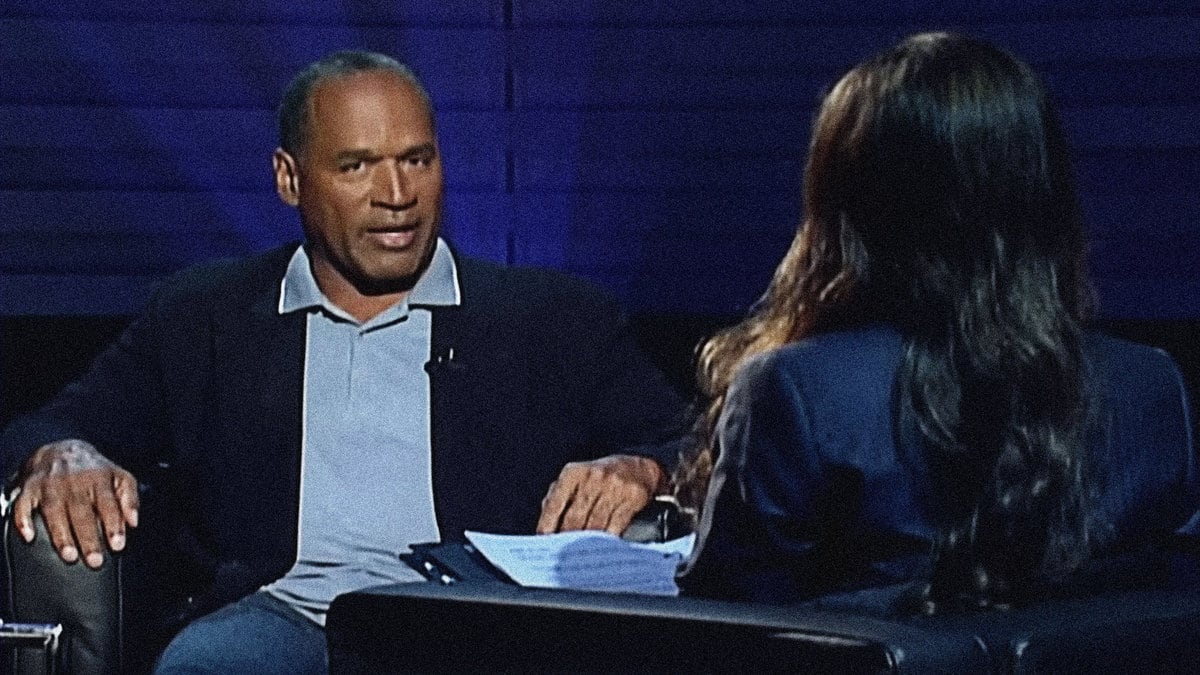Publishing maven Judith Regan wrote earlier this month how she wrangled O.J. Simpson for an hourslong interview to discuss the murders of Nicole Brown Simpson and Ron Goldman, a taped sit-down that wouldn’t be seen for more than 12 years after a fiery backlash.
Much like that infamous interview, however, Regan’s recounting in The Hollywood Reporter has vanished from public view.
“On April 25, this article was removed at the author’s request,” reads the editor’s note affixed atop a now-blank page published on April 18, a week after Simpson’s death from prostate cancer.
According to the Wayback Machine’s cached version of the now-scrubbed landing page, Regan’s juicy essay was originally titled, “How I Did It: Judith Regan Remembers the Day O.J. Simpson (Almost) Confessed.”
It was unclear why Regan wanted the column removed. The longtime publisher and The Hollywood Reporter did not respond to requests for comment, though the scrubbing of such a high-profile story is notably unusual for the glitzy publication.
Regan hasn’t shied away from discussing her experience before. She appeared on the panel analyzing the O.J. interview when it eventually aired in 2018, and she spoke to NewsNation’s Cuomo the day after his death to describe how “bone-chilling” it was to interview a “cold-blooded” and “deeply manipulative” Simpson.
The 5,160-word piece meticulously recounted how Regan, then the publisher of HarperCollins imprint ReganBooks, was approached by a Simpson lawyer in 2006 with an offer to have him confess to the 1994 murders. The condition, Regan wrote, was that “If” had to be in the title so that Simpson could have “deniability with his children.”
“Obviously, it made no sense,” Regan wrote. “It was inane, profoundly twisted and insane.”
But Regan was convinced that publishing the book If I Did It—along with a taped television interview, which Simpson agreed to participate in—would be the only way to get the NFL legend to admit he skirted justice for killing his ex-wife and her friend. She pitched the idea to her top boss, Rupert Murdoch—whose News Corp. media empire owns HarperCollins—and he agreed to move forward with the book. (Murdoch later said the interview was an “ill-considered project” after initially killing it.)
After outlining how the deal was struck and how ABC icon Barbara Walters nearly conducted the interrogation herself before pulling out without explanation (“She was champing at the bit to do the interview. Champing!”), Regan explained how she ended up in the interviewer’s chair and came face-to-face with Simpson.
“I quickly realized that all I had to do was remain still, look into his eyes and listen without judgment or expression,” she wrote. “Sure, I was judging him, but from his point of view, I was interested, intrigued and even captivated by him.”
What started as a hypothetical account of the murders turned into first-person admissions of how Simpson remembered he “grabbed the knife” and how it was “horrible — absolutely horrible” to see so much blood at the scene.
“When he said it was ‘horrible, absolutely horrible,‘ he was telling the truth,” Regan wrote. “Ironically, it was the only moment in the interview that he acknowledged the extent of the heartbreaking horror.”
The interview did not see the light of day for 12 years, however, after a vast array of critics—including Fox News tycoon Roger Ailes, mainstream media outlets, and the Goldman family—lambasted the idea of Simpson having a public forum to say something so salacious. Regan was eventually fired from HarperCollins after News Corp. accused her of making antisemitic remarks in a phone call, though it later settled a $100 million defamation lawsuit from her and admitted the claim was false.
Fox’s broadcast network eventually aired the interview in 2018—despite the network once alleging the tapes had been destroyed. Bits of the interview were broadcast countless times following Simpson’s death on April 10, prompting Regan to receive “a zillion” messages celebrating his passing. She said she couldn’t participate, instead opting to pray that Brown and Goldman’s families—and Simpson’s kids—could find peace.
“O.J.’s story ended as all of our stories do: in death,” Regan wrote.







